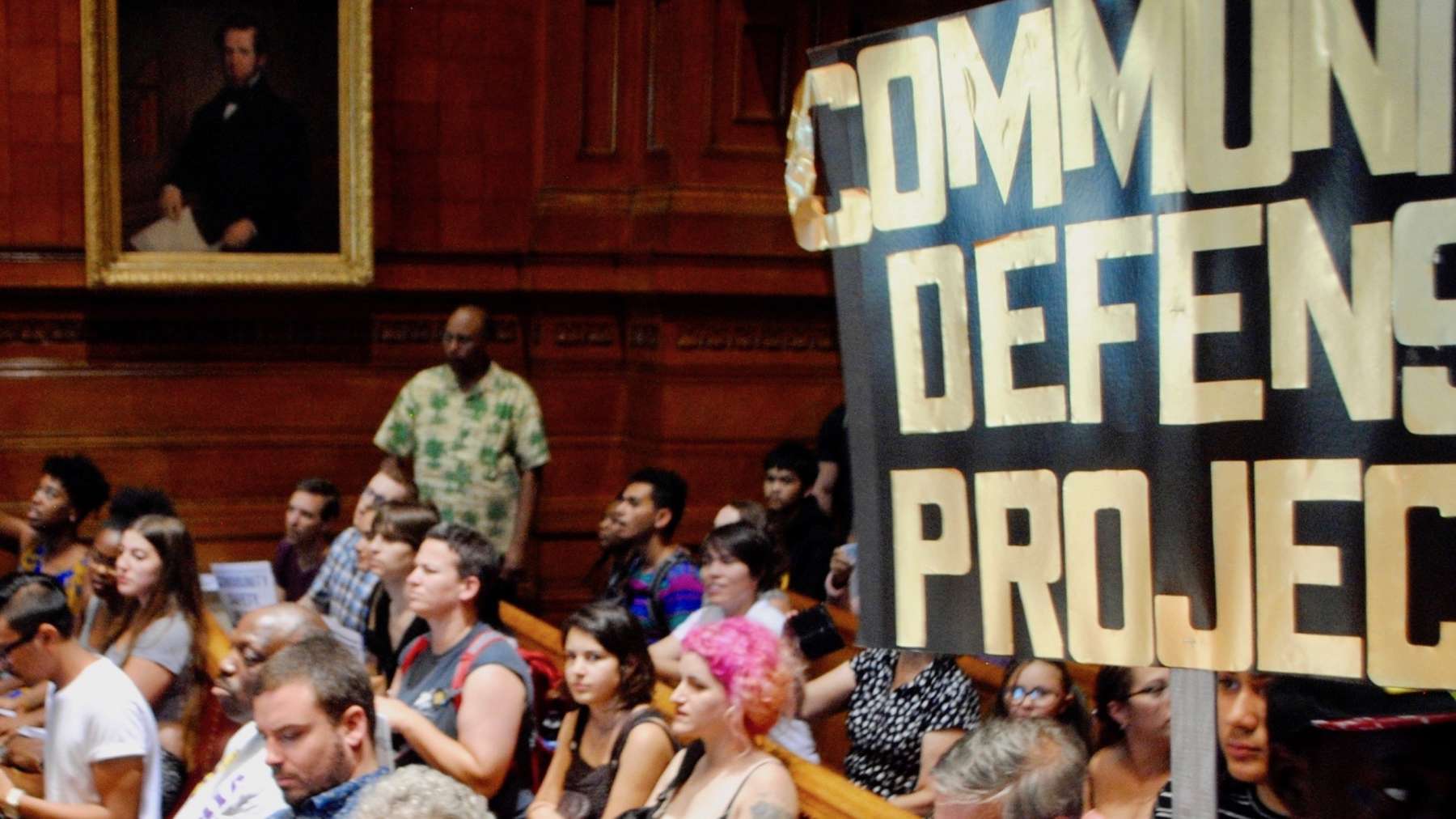PrYSM and City sign consent agreement, ending lawsuit over gang database
It is “not the endgame to ‘have a legally feasible gang database.’” Instead, “we believe in the dismantling of the school to prison to deportation pipeline,” said Vanessa Flores-Maldonado of PrYSM. The Providence Youth Student Movement (PrYSM) and the City of Providence signed a consent agreement Monday, ending PrYSM’s legal challenge to the Providence Police Department’s gang database policy and
March 16, 2020, 10:07 am
By Julia Rock
It is “not the endgame to ‘have a legally feasible gang database.’” Instead, “we believe in the dismantling of the school to prison to deportation pipeline,” said Vanessa Flores-Maldonado of PrYSM.
The Providence Youth Student Movement (PrYSM) and the City of Providence signed a consent agreement Monday, ending PrYSM’s legal challenge to the Providence Police Department’s gang database policy and substantially revising its language to institute protections for accused gang members.
The new policy prohibits mere association with a gang member as a criterion for inclusion in the database and institutes a standard of “specific intent” behind actions used as evidence in gang member designations.
The lawsuit, filed by PrYSM in July of 2019, alleged that the department’s gang database policy violated both the local Providence Community-Police Relations Act (PCPRA) and the United States Constitution by infringing on the right to freedom of association. It was the first legal challenge to a gang database on these grounds nationwide.
The agreement comes after more than two months of negotiation. It modifies the police department’s existing gang database policy to remove association-based criteria such as being a “contributor in gang publications,” appearing “in gang group-related photographs,” and “bearing [a] known gang group tattoo or marking.”
The updated policy also stipulates that the police department cannot rely on information from other law enforcement agencies which use association as a factor, nor the testimony of confidential informants who consider “mere association with other people identified as gang members” as a factor.
Vanessa Flores-Maldonado, co-director of PrYSM, said that while the city’s agreement to modify the gang database policy is a small victory, it is “not the endgame to ‘have a legally feasible gang database.’” Instead, “we believe in the dismantling of the school to prison to deportation pipeline,” Flores-Maldonado said. “The gang database is a major factor in that pipeline. So for us, our end goal is to see there be no gang database, especially one that uses––heavily––racial bias to operate.”
Both the city and the police department declined to comment for this story, but police department spokesperson Lindsay Lague told the Providence Journal in an email that the police worked with PrYSM “to craft an updated policy to require more specific criteria for an individual to be included in the intelligence assessment database, while at the same time continue to serve as an effective tool for our officers.”
Flores-Maldonado told UpriseRI, “we’re not here to improve community police relationships. That is not our goal. Our goal is to protect our community.”
The city admitted no fault in the consent agreement, but will pay $2,500 in legal costs to PrYSM.






